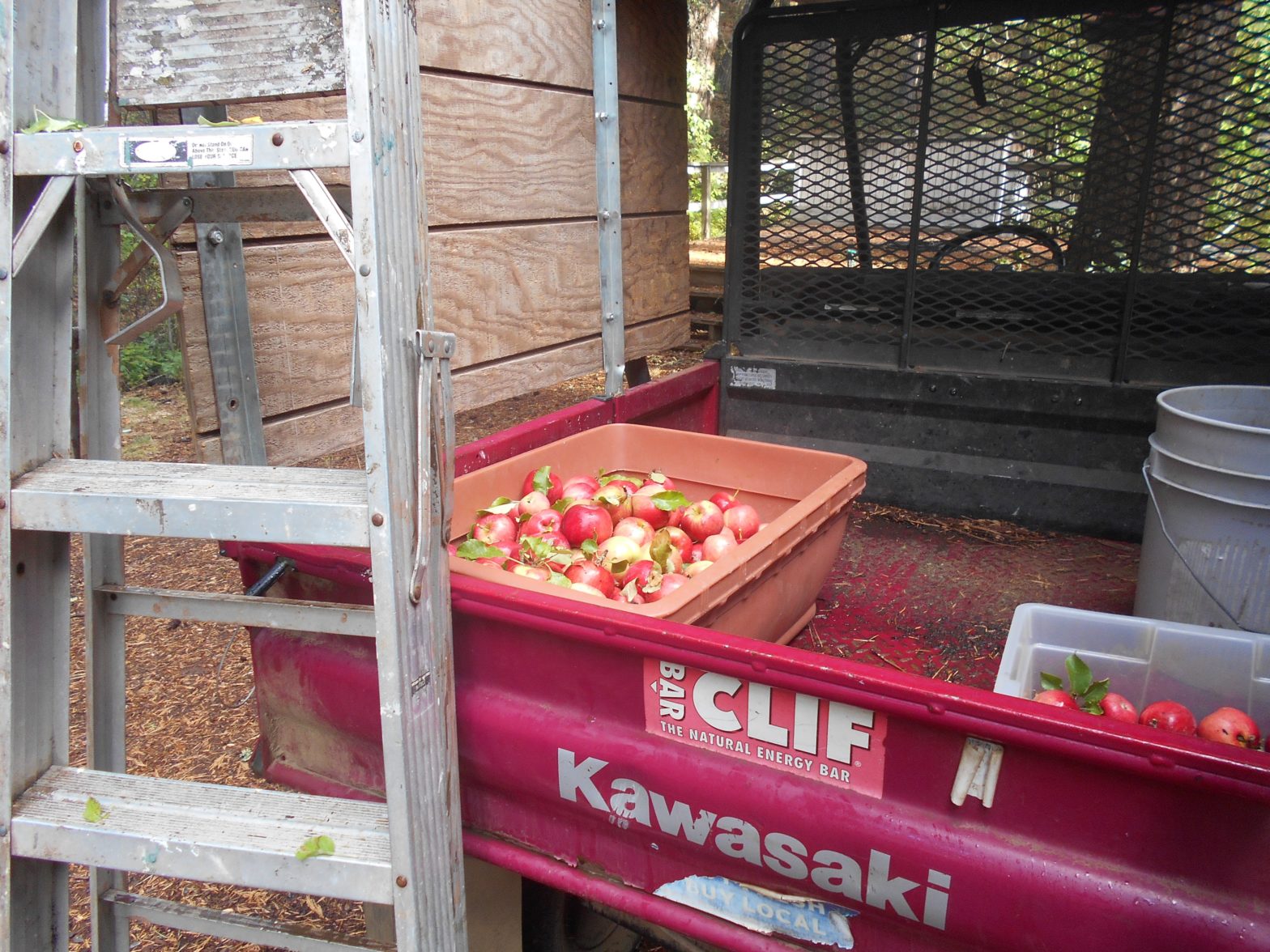“That’s not what I’m talking about!” he said,
“I’m talking about a fig straight from the earth—
gift of Allah!—on a branch so heavy it touches the ground.
I’m talking about picking the largest fattest sweetest fig
in the world and putting it in my mouth.”
(Here he’d stop and close his eyes.)
Nye, Naomi Shihab. “My Father and the Figtree.” Words Under the Words, Eighth Mountain Press, 1995.
Hello! Happy Fall!
This past weekend was the OE apple fest. The following post is an essay about apple picking. I wrote it a few weeks ago for an assignment and thought it would fit well here. Enjoy 🙂
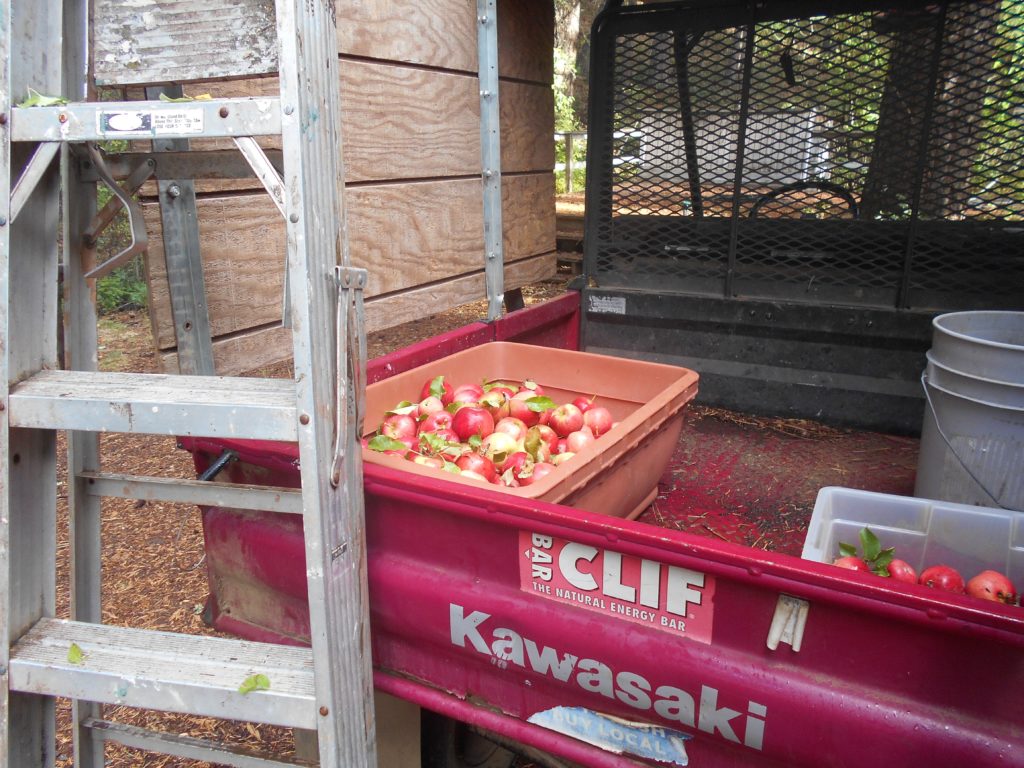
I joined the group that went apple picking during Friday chores. This was a transgression. I had signed my name under “wood-chopping,” but Friday morning had been the roughest part of a long rough week. Seaton let me slip into the van, with the ladders and the bins and Kuma very very excited to leave, all wagging tail and lanky happiness.
The apple orchard, when we arrived, was full of hip-length grass and blackberry brambles. We picked our way to the trees, smelling the apples before we saw them. The bruised fruit on the ground perfumed the air, smelling of cider and dry leaves. The trees hadn’t been trimmed in years, growing undisturbed by the side of the road. The branches were matted and overgrown. The fruit was feral too: most of the apples had a worm hole or two. Some of them had rotted on one side or pushed themselves into odd shapes. The trees sent crazy offshoots completely covered in fruit down to the ground and higher into the air than we could reach from our ladders. I didn’t understand abundance until I came to the OE and watched one garden feed all of us, observed how the goat milk in the cookhouse fridge never runs out, saw decades-old apple trees with more fruit than we could ever possibly pick falling off the branches.
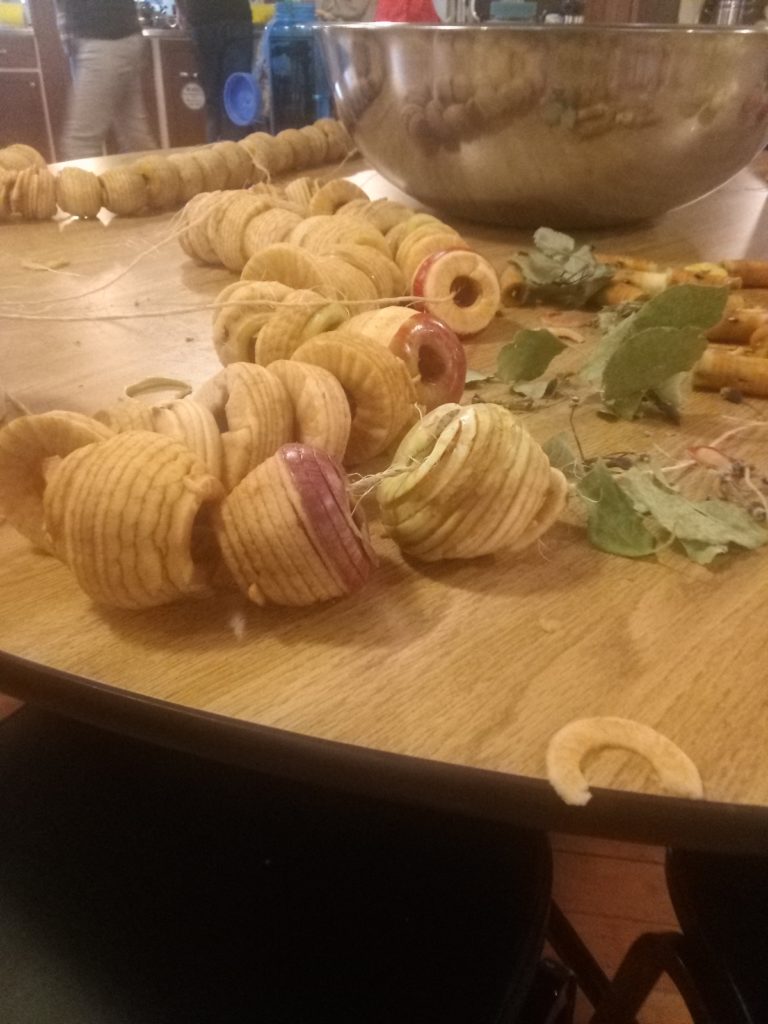
Picking apples might be the most anti-capitalist thing I have ever done. Imagine a tree, all but forgotten by humankind, that continues to give and give and give. The only response possible is to receive. We hung grocery bags around our necks so that we could pick with both hands and dumped the bags into plastic bins when they became too heavy. We bit into the apples, cautiously at first, then surprised by how sweet they were. It seemed like our picking barely made a dent in the trees’ supply of apples. I moved to different trees only when I became bored of standing in one place, picking from the same branch. It was impossible to exhaust any one tree’s hoard.
At some point I found myself separated from the group, at a very overgrown tree that the rest of the pickers had moved on from. I glimpsed a clump of apples underneath the outer branches that were too deeply tangled for me to reach from outside the tree. I slipped my bag over my neck and crawled down underneath the branches into the open space against the trunk. It was a tighter fit than it appeared to be from the outside. When I tried to straighten my back, twigs poked my face and arms. I pushed my head into a small opening in the branches, straightening my spine, and suddenly I was surrounded by the firm arms of the tree. My breath caught in my throat: it felt like a hug. A sudden, unexpected embrace. I couldn’t move without bumping into the knobbly branches that encircled me: the tree wanted to touch me, wanted to hold me close.
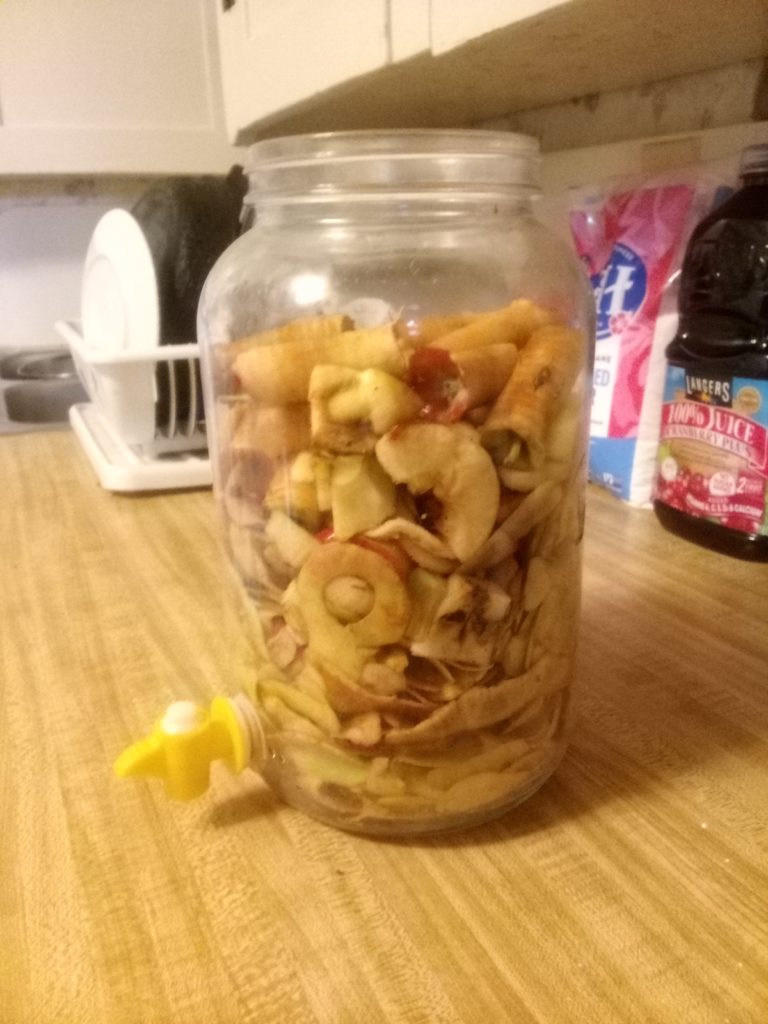
I’ve heard of human tree-huggers, but I’ve never heard of trees hugging people. Why is that? When did we learn to ignore the ways that nature reaches for us, holding sweet apples in her hands, longing to embrace us?
Maybe democracy and human rights are in decline, and humans are killing the only home we will ever know, and my generation is the one that will watch everything burn. Maybe systemic change isn’t worth hoping for because it is impossible. But maybe there also exist forgotten trees which long to love us. Maybe our home can only be where we pick through the thornbushes to reach branches hanging heavy with fruit. We learn to share with squirrels and apple worms. Maybe we learn to love the trees back.
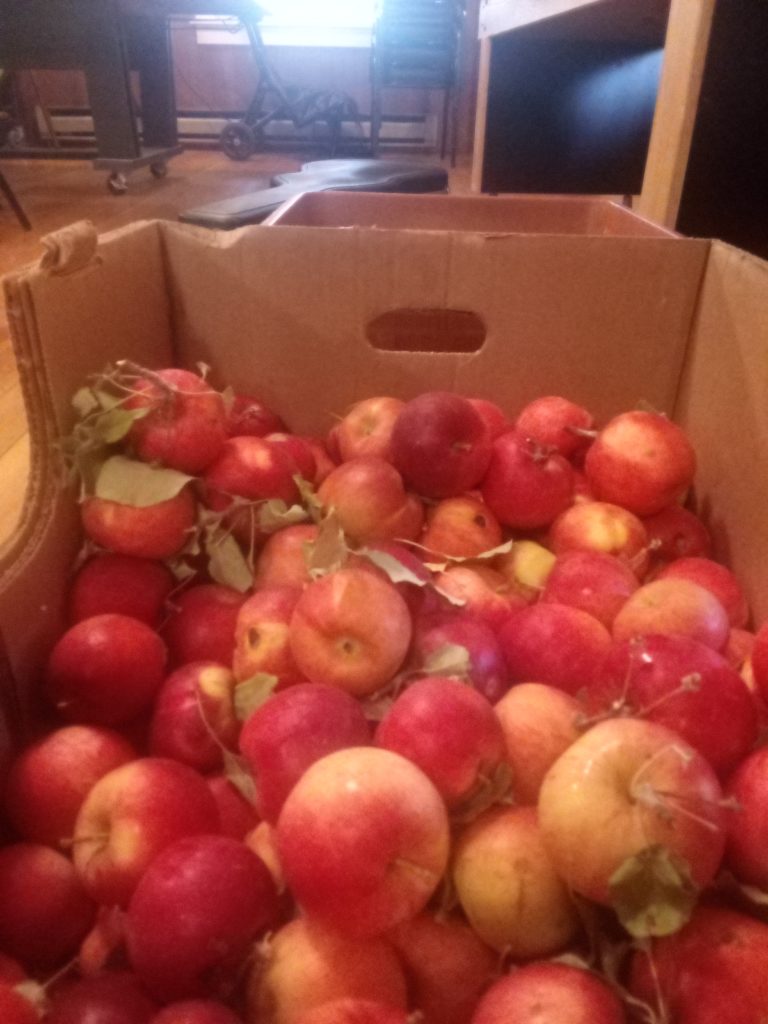
When I emerged from the tree there was a rainbow in the gray sky, and Kuma was sprinting in circles around us, excited to move on. All our bins were full. It was time to drive back up the mountain.


